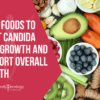
The best water to drink (and the types you should avoid)
Water: It makes up almost 75 percent of your body and is absolutely necessary for life. You probably know you should drink 8 to 10 glasses of this life-giving liquid a day, but have you given serious thought to the quality of what you’re drinking?
Our water guide will tell you everything you need to know about water (including bottled water) and which kinds are best to support optimal health.
What are the different kinds of water? 4 main types
In the U.S., we have many options for our drinking water, but they’re not all beneficial:
1. Tap water is municipal water that comes out of the faucets and has been treated, processed, and disinfected. It’s purified with chlorine and generally has added fluoride. But one of the byproducts of using chlorine in our drinking water is a potential link to cancer.1
2. Distilled water can be any kind of water that’s been vaporized and collected, leaving behind any solid residues, including minerals. Distilled water has no minerals in it at all.
3. Reverse osmosis water has been forced through membranes that remove larger particles, pollutants, and minerals. Reverse osmosis water is usually acidic.2
4. Deionized water has had ionized impurities and minerals removed from it but not bacteria or pathogens.
All of the above waters lack essential minerals that are necessary for good health.
Mineral deficiency may contribute to anxiety, high blood pressure, constipation, weakened immunity, low energy, and even instances of irregular heartbeat.3-6
Sick and tired of feeling sick and tired? Claim your free guide to quitting sugar naturally.
So, is it a bad idea to drink bottled water?
Bottled waters deserve some special attention because they’re not always as pure as you might expect them to be.
Here are some reasons to reconsider choosing bottled water:
- Dangerous toxins from some plastic water bottles may leach into your water.7
- Bottled water is often just purified municipal water and may lack essential minerals.
- Purifying, bottling, and shipping water requires vast resources and uses more water than when you get your water from a pure source in the first place.
If you do use bottled water, make sure you use reusable glass or plastic containers, and try not to consume ultra-purified municipal waters in favor of naturally clean sources.
What is the healthiest water to drink? 4 preferred types
The healthiest water to drink is clean, pure, and full of naturally occurring minerals:
1. Well water comes from a hole drilled in the ground that taps into a water source. A pump brings it to the surface. If you don’t have access to city water, then you would need a well.
2. Natural spring water flows up from a natural spring and is bottled at the source.
3. Artesian or spring waters come from a natural source but are bottled off-site and are processed and purified.
4. Mineral water could be natural spring water or artesian water, comes from an underground source, and contains at least 250 parts per million (ppm) of dissolved solids, including minerals and trace elements.
All of the types of water mentioned above have essential minerals and nutrients like magnesium, potassium, and sodium. Minerals are important for nearly every function in your body, especially your adrenals.8
Mineral-rich water can be one source of these nutrients, but if you can’t get these waters because of cost or your location, then home filters are an option.
Which water filters work best? 2 suggested types
Look for these methods of filtration when you purchase filters or bottled water:
1. Absolute 1 Micron Filtration removes any particles that are larger than 1 micron in size. This filtration leaves minerals in water.
2. Ozonation is used by bottled water companies instead of chlorine to eliminate bacteria. Ozonation does not change the mineral content of your water.
Remember that any filter is better than no filter, so even standard “pour-through” filters like those from Brita can help clean up your water, remove chlorine, and improve the taste. But they also filter out minerals.
If you’re not getting enough minerals from water and your diet, then try a mineral supplement like Body Ecology’s Ancient Earth Minerals Liquid. This formula is a concentrated, alkalizing nutritional supplement that may help to detox your body from harmful pollutants and give you the minerals you might be missing.9,10
Is water the fountain of youth? We think so. It’s certainly one of the most important parts of a healthy lifestyle, so make sure that you’re choosing the best possible water, avoiding dangerous plastics, and getting enough vital minerals.
With 8 to 10 glasses a day of pure water, you’re likely to notice a big difference in your energy levels.11
REFERENCES:
- 1. Prasse C, von Gunten U, Sedlak DL. Chlorination of Phenols Revisited: Unexpected Formation of α,β-Unsaturated C4-Dicarbonyl Ring Cleavage Products. Environ Sci Technol. 2020 Jan 21;54(2):826-834. doi: 10.1021/acs.est.9b04926. Epub 2020 Jan 6. PMID: 31904937; PMCID: PMC7665061.
- 2. McCurry DL, Ishida KP, Oelker GL, Mitch WA. Reverse Osmosis Shifts Chloramine Speciation Causing Re-Formation of NDMA during Potable Reuse of Wastewater. Environ Sci Technol. 2017 Aug 1;51(15):8589-8596. doi: 10.1021/acs.est.7b01641. Epub 2017 Jul 18. PMID: 28671841.
- 3. DiNicolantonio JJ, O’Keefe JH, Wilson W. Subclinical magnesium deficiency: a principal driver of cardiovascular disease and a public health crisis [published correction appears in Open Heart. 2018 Apr 5;5(1):e000668corr1]. Open Heart. 2018;5(1):e000668. Published 2018 Jan 13. doi:10.1136/openhrt-2017-000668.
- 4. Mori S, Tomita T, Fujimura K, Asano H, Ogawa T, Yamasaki T, Kondo T, Kono T, Tozawa K, Oshima T, Fukui H, Kimura T, Watari J, Miwa H. A Randomized Double-blind Placebo-controlled Trial on the Effect of Magnesium Oxide in Patients With Chronic Constipation. J Neurogastroenterol Motil. 2019 Oct 30;25(4):563-575. doi: 10.5056/jnm18194. PMID: 31587548; PMCID: PMC6786451.
- 5. S.-R. Pasricha, M. Low, J. Thompson, A. Farrell, L.-M. De-Regil. Iron Supplementation Benefits Physical Performance in Women of Reproductive Age: A Systematic Review and Meta-Analysis. Journal of Nutrition, 2014; DOI: 10.3945/jn.113.189589.
- 6. Khan AM, Lubitz SA, Sullivan LM, et al. Low serum magnesium and the development of atrial fibrillation in the community: the Framingham Heart Study. Circulation. 2013;127(1):33-38. doi:10.1161/CIRCULATIONAHA.111.082511.
- 7. Ying-Ying Fan, Jian-Lun Zheng, Jing-Hua Ren, Jun Luo, Xin-Yi Cui, Lena Q. Ma. Effects of storage temperature and duration on release of antimony and bisphenol A from polyethylene terephthalate drinking water bottles of China. Environmental Pollution, 2014; 192: 113 DOI: 10.1016/j.envpol.2014.05.012.
- 8. Cuciureanu MD, Vink R. Magnesium and stress. In: Vink R, Nechifor M, editors. Magnesium in the Central Nervous System [Internet]. Adelaide (AU): University of Adelaide Press; 2011.
- 9. Bezuglova O., Shestopalov A. (2005) The Use of Humates for the Detoxification of Soils Contaminated with Heavy Metals. In: Perminova I.V., Hatfield K., Hertkorn N. (eds) Use of Humic Substances to Remediate Polluted Environments: From Theory to Practice. NATO Science Series (Series IV: Earth and Environmental Series), vol 52. Springer, Dordrecht. https://doi.org/10.1007/1-4020-3252-8_9.
- 10. Pepper, Ian L. “The soil health-human health nexus.” Critical Reviews in Environmental Science and Technology 43, no. 24 (2013): 2617-2652.
- 11. Pross N, Demazières A, Girard N, et al. Influence of progressive fluid restriction on mood and physiological markers of dehydration in women. Br J Nutr. 2013;109(2):313-321. doi:10.1017/S0007114512001080.









